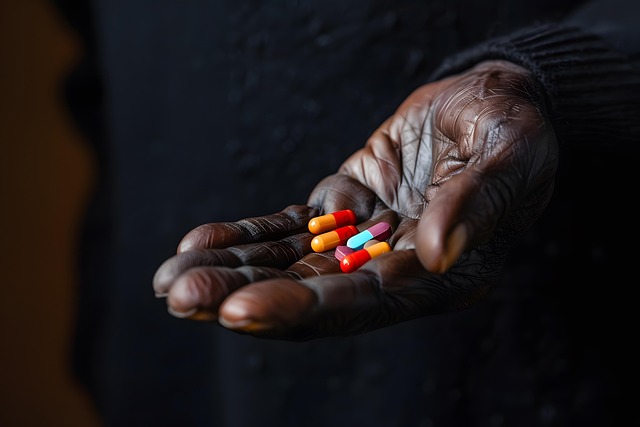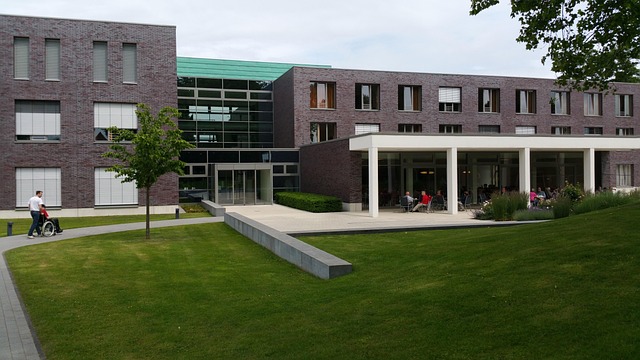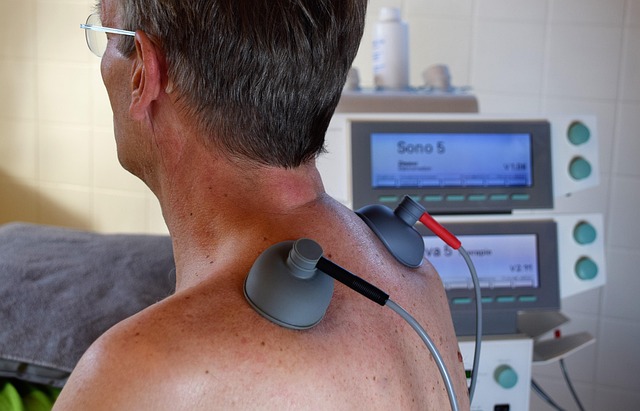Legal professionals struggling with substance abuse face unique challenges due to high-pressure careers and public scrutiny. Confidential lawyer treatment programs offer specialized services, supportive environments, and tailored support groups in partnership with bar associations. These programs use evidence-based therapies like cognitive-behavioral therapy (CBT), group therapy, and relapse prevention workshops, prioritizing confidentiality to encourage honest exploration of personal struggles. Bar association programs provide education, counseling, and networking opportunities, fostering better recovery outcomes and mitigating ethical dilemmas while enhancing the well-being of the legal community.
In the high-pressure world of law, attorneys and legal professionals face unique challenges that can lead to discreet substance abuse issues. With long hours, demanding clients, and intense deadlines, it’s not surprising that addiction rates among lawyers are alarmingly high. This article explores the hidden epidemic of lawyer addiction, delving into the barriers that prevent legal minds from seeking help. We present a comprehensive guide to discreet recovery programs tailored for attorneys, highlighting effective strategies and resources for overcoming addiction and achieving long-term sustainability in practice.
- Understanding the Prevalence of Addiction Among Legal Professionals
- Challenges Facing Attorneys in Seeking Help for Substance Abuse
- Unique Considerations for Discreet Lawyer Addiction Treatment Programs
- Effective Strategies and Resources for Recovery and Long-Term Sustainability
Understanding the Prevalence of Addiction Among Legal Professionals

Addiction does not discriminate, and legal professionals are not immune to its grasp. Studies suggest that lawyers and judges often face unique stressors related to their high-pressure careers, leading to an increased risk of substance abuse and addiction. The demanding nature of the legal field, with its long hours, intense deadlines, and high-stakes cases, can contribute to a culture where coping mechanisms may involve alcohol or other substances. This is especially concerning given the ethical and professional standards expected of attorneys.
Confidential lawyer treatment programs have emerged as vital resources to address this growing concern. These specialized services cater specifically to the needs of legal professionals, offering discreet and supportive environments for recovery. Many bar associations have recognized this issue and developed programs or partnerships to provide access to evidence-based treatments, counseling, and support groups tailored to the challenges faced by lawyers struggling with addiction. By prioritizing their well-being, these initiatives aim to enhance professional integrity and improve the overall health of the legal community.
Challenges Facing Attorneys in Seeking Help for Substance Abuse

Attorneys and legal professionals face unique challenges when it comes to seeking help for substance abuse. The demanding nature of their work, long hours, high-stress levels, and intense public scrutiny can create a culture where addiction goes unnoticed or unaddressed. Many lawyers struggle with the stigma associated with admitting they need help, often fearing judgment from colleagues and clients. This reluctance to seek treatment can lead to severe consequences, including impaired professional performance, ethical violations, and even loss of licensure.
Confidential lawyer treatment programs specifically designed for legal professionals are crucial in addressing these challenges. These programs offer a safe and supportive environment, understanding the unique dynamics of the legal community. Bar association programs that focus on substance abuse recovery provide resources, education, and peer support tailored to attorneys’ needs. By recognizing and acknowledging the challenges they face, legal professionals can take the first step towards healing and long-term recovery, ensuring better health and improved performance in their careers.
Unique Considerations for Discreet Lawyer Addiction Treatment Programs

Legal professionals, such as attorneys, face unique challenges when it comes to seeking help for addiction due to the stringent ethical and professional standards within their industry. Discreet lawyer addiction treatment programs understand these complexities and tailor their services accordingly. These programs recognize that maintaining confidentiality is paramount, ensuring legal professionals can access care without fear of exposure or stigma.
Bar association programs often collaborate with specialized treatment centers to offer comprehensive support, including individual counseling, group therapy sessions, and educational workshops focused on relapse prevention. The focus is not just on addressing the addiction but also on mitigating potential ethical dilemmas and maintaining the integrity of the legal profession. Confidential lawyer treatment allows for honest exploration of personal struggles in a safe and supportive environment, fostering better outcomes for those seeking recovery.
Effective Strategies and Resources for Recovery and Long-Term Sustainability

Effective strategies for recovery involve a combination of specialized therapy, support groups, and tailored interventions designed to address the unique challenges faced by attorneys and legal professionals. Many successful programs offer confidential lawyer treatment options, ensuring privacy and fostering trust among participants. Cognitive-behavioral therapy (CBT) is widely recognized as an evidence-based approach, helping individuals identify and change unhealthy thought patterns and behaviors associated with addiction. Group therapy sessions, both peer-to-peer and with trained facilitators, provide a supportive environment for sharing experiences and learning from one another—a powerful tool in the legal professional recovery process.
Additionally, bar association programs have emerged as valuable resources, offering education, counseling services, and networking opportunities tailored to the specific needs of lawyers grappling with addiction. Integrating these resources into an individualized recovery plan can significantly enhance long-term sustainability. Accessing specialized treatment centers known for their expertise in lawyer addiction treatment ensures comprehensive care and aftercare support, ultimately empowering legal professionals on their path to lasting recovery.
Addiction among legal professionals, while often discreet, is a serious issue that requires specialized care. Lawyer addiction treatment programs tailored to address the unique challenges faced by attorneys offer a much-needed safe space for recovery. By leveraging effective strategies and resources, these programs facilitate long-term sustainability, enabling lawyers to reclaim their lives and careers. Recognizing the prevalence and impact of substance abuse within the legal community is crucial, and discreet recovery initiatives play a vital role in fostering a healthier, more resilient profession.






